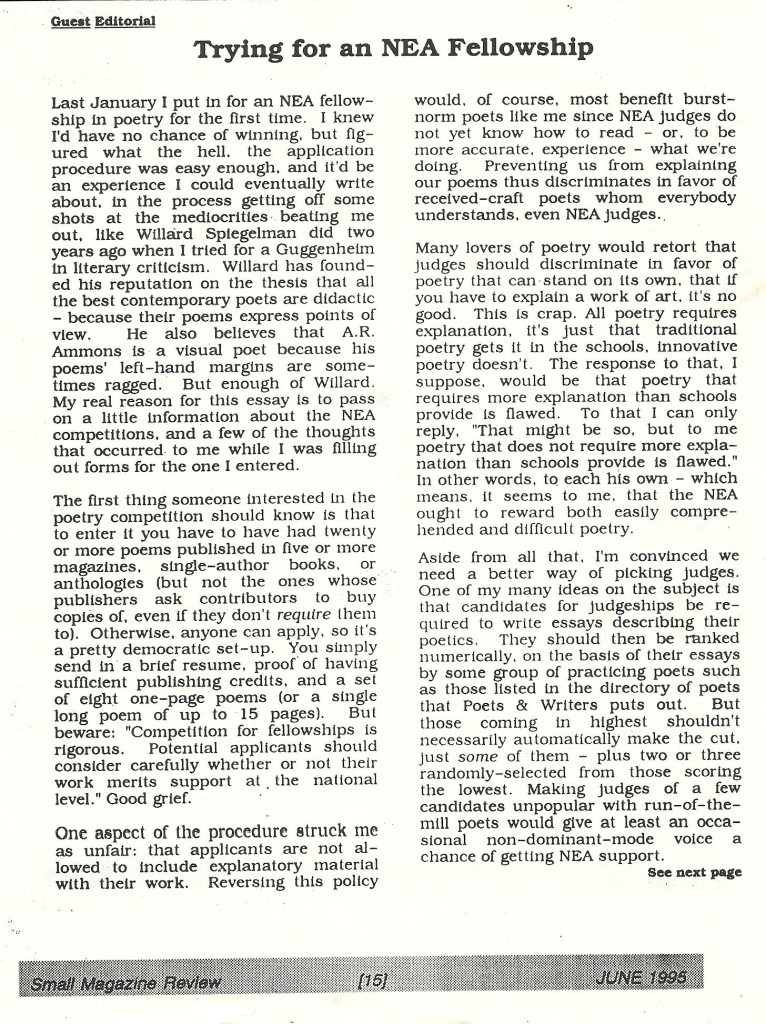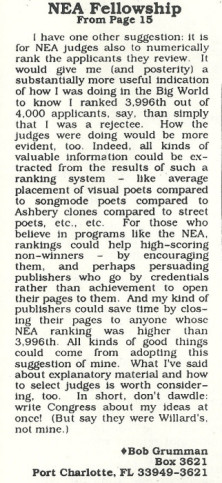Archive for the ‘Dory L. Williams’ Category
Entry 1699 — More Scraps
Wednesday, January 21st, 2015
Scrap #1: Yesterday’s mail included another chapbook from Mark Sonnenfeld, Check Check Done and Done, half of it devoted to poems by Mark and half to poems by Dory L. Williams. Good reading but one thing in it by Dory L. Williams really knocked me out: to me, it’s an epigram, because a statement of an opinion, so according to my taxonomy a work of informrature. Be that as it may, it’s as good an epigram as I’ve come across in years, if ever:
Covetness
If you want fame and money without real
achievement behind it, you’re not greedy enough.
Scrap #2: After I posted yesterday’s entry, I remembered a central feature of Iowa Workshop Poetry I’d intended to mention before any other, but then forgot: it’s the recognition of the potential of ordinary subject matter for tranfiguringly successful poetry–as in Williams’s “The Red Wheelbarrow,” and in all the best haiku. I am all for ordinary subject matter . . . but it can’t do much unless connected to archetypal matter one needs to be in one’s magniceptual awareness to be able to employ. Williams’s poem is, finally, not about a wheelbarrow anywhere near as much as it is about Beauty.
Lesson for poets: keep explicit abstracts and generalities out of your poems as Ezra tells you to, but build you poems on them as I tell you to. This, incidentally, you don’t necessarily have to consciously strive for, but you must be able to recognize when something worthily archetypal begins to show under your poem’s words so as to strengthen those words’ connection to it–and/or weaken the visibility of their path to it. The archetypal foundation of the best poems is much more often understood in their engagents’ marrow long before it’s dealt with the reasoning parts of their higher faculties, if it ever is. (Few poets have very large reducticeptual awarenesses or scienceptual awareness, which are where analysis is carried out.)
Possibly more important than the connection to the archetypal is the technique, the freshness of the technique employed to make that connection, which is usually metaphorical.
I’m just repeating old thoughts of mine, disorganizedly. Jus’ tryin’ to make it through another blog entry.
.


